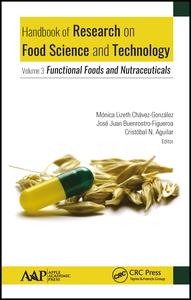

Most ebook files are in PDF format, so you can easily read them using various software such as Foxit Reader or directly on the Google Chrome browser.
Some ebook files are released by publishers in other formats such as .awz, .mobi, .epub, .fb2, etc. You may need to install specific software to read these formats on mobile/PC, such as Calibre.
Please read the tutorial at this link: https://ebookbell.com/faq
We offer FREE conversion to the popular formats you request; however, this may take some time. Therefore, right after payment, please email us, and we will try to provide the service as quickly as possible.
For some exceptional file formats or broken links (if any), please refrain from opening any disputes. Instead, email us first, and we will try to assist within a maximum of 6 hours.
EbookBell Team

4.7
56 reviewsThe three volumes in this handbook highlight new research and current trends in food science and technology, looking at the most recent innovations, emerging technologies, and strategies focusing on taking food design to sustainable levels. In particular, the handbook focuses on modernization in the food industry, sustainable packaging, food bioprocesses, food fermentation, food microbiology, functional foods and nutraceuticals, natural products, nano- and microtechnology, healthy product composition, innovative processes and bioprocesses for utilization of by-products, development of novel preservation alternatives, extending the shelf life of fresh products, alternative processes requiring less energy or water, among other topics.
Volume 3 of the 3-volume set focuses on functional foods and nutraceuticals. The chapters examine nutraceuticals as treatment for cancer and neurodegenerative diseases, trends in functional food in noncommunicable diseases, synergism in food trends, bioactive peptides, agave fructans as a functional component in foods, and more.